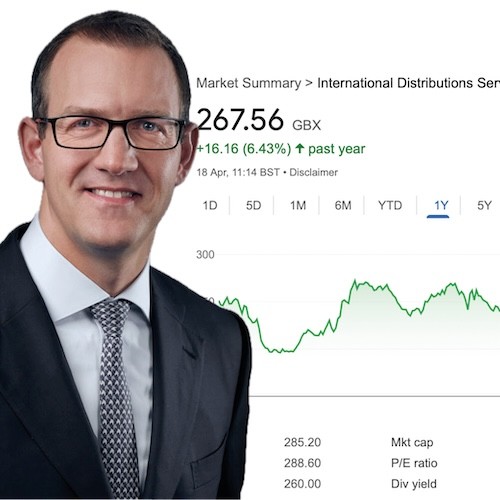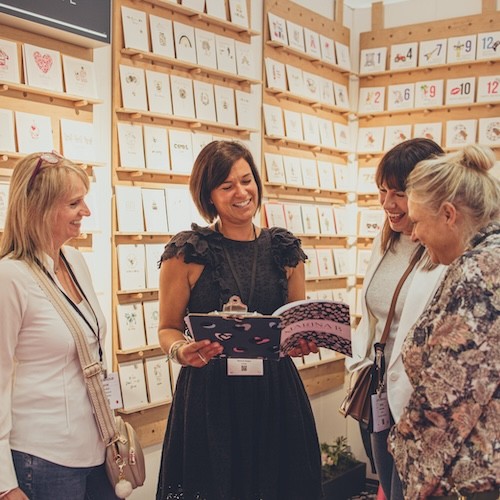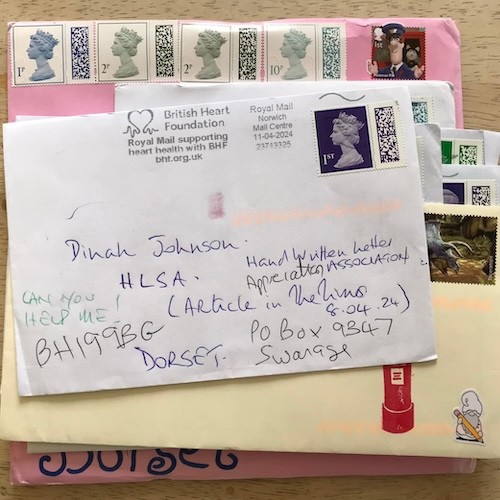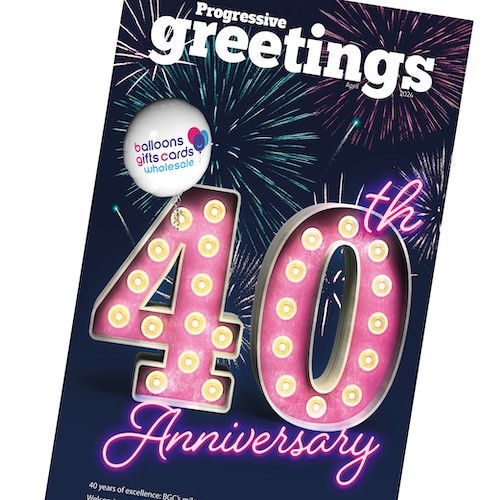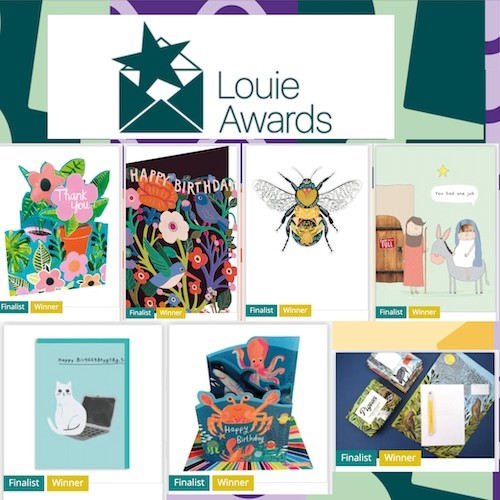As part of its ongoing commitment to the greeting card sector, paper company Fedrigoni (which supplies many leading publishers with its board) has instigated a host of PR activity to tie in with Christmas Card Day (which falls tomorrow, December 9).
Fedrigoni UK’s PR agency disseminated an editorial opinion piece by Pete Stevens, southern UK sales manager of Fedrigoni to a host of trade and consumer media. The piece entitled ‘Why greeting cards are the real window to the soul’ highlights some of the trends in greeting card sales during the pandemic, from the boom in e-commerce to the growing demand for sustainable alternatives as well as how greeting card designs are increasingly reflecting diversity and inclusivity as well as continuing to play a part in helping the nation’s mental health.

“What underpins the piece is how greeting cards can tell us a lot about society, forming emotional time capsules of our ever-changing cultures and customs. They are a powerful lens through which to view the mood of the British public, a nation where sending cards is quintessential to our expression of affection,” states Pete.
Peppered with industry facts as well as interesting examples of how greeting cards continue to chime with the tastes of the buying public, the expectation is the content will be aired by the media in total as well as chunks appearing on social media channels.
Here is the opinion piece in its entirety…
Why greeting cards are the real window to the soul
By Pete Stevens, southern UK sales manager at Fedrigoni
There’s nothing quite as “British” as sending a greeting card. Whether it’s to celebrate a birthday, congratulate a new job, or commiserate a loss, Brits will always find a reason to express themselves through a folded piece of paper. This explains why, even in the pandemic, the nation collectively spent £1.4bn on single greeting cards in 2020, according to a GCA report. Despite being an 8.5% decline from 2019, this is a solid performance for the worst year in retail history, particularly when compared to the rest of the printing industry who saw sales plummet.
Why, then, did the greeting card industry stay so resilient?
A huge factor was the quintessentially British sentimentality towards greeting cards. Lockdown faced us all with a completely novel situation, an equalising experience that made everyone a little more empathetic. Separated from loved ones, we were unable to celebrate the joyous moments in life as we usually would. Greeting cards therefore took on a higher value, a thoughtful way of celebrating anniversaries, pregnancies and more when in-person socialising couldn’t take place.
But an even more significant trend was the movement beyond occasion-based gifting, towards general expressions of care. As we all experienced the emotional implications of lockdown – loneliness, fear, stress – but were unable to comfort each other normally, many turned to greeting cards as a mode of support. Simply saying “I’m thinking of you” during a time of global struggle was never more important, and cards became a powerful tool of expressing these feelings.
That’s the thing about Brits – we always find a way to stay united during challenging times. Greeting cards became a way of forging meaningful connections while separated during the pandemic, creating bridges between households or workplaces. You can tell a lot about a population through their greeting card habits. A window to the soul of a nation determined to get through a tough time together.
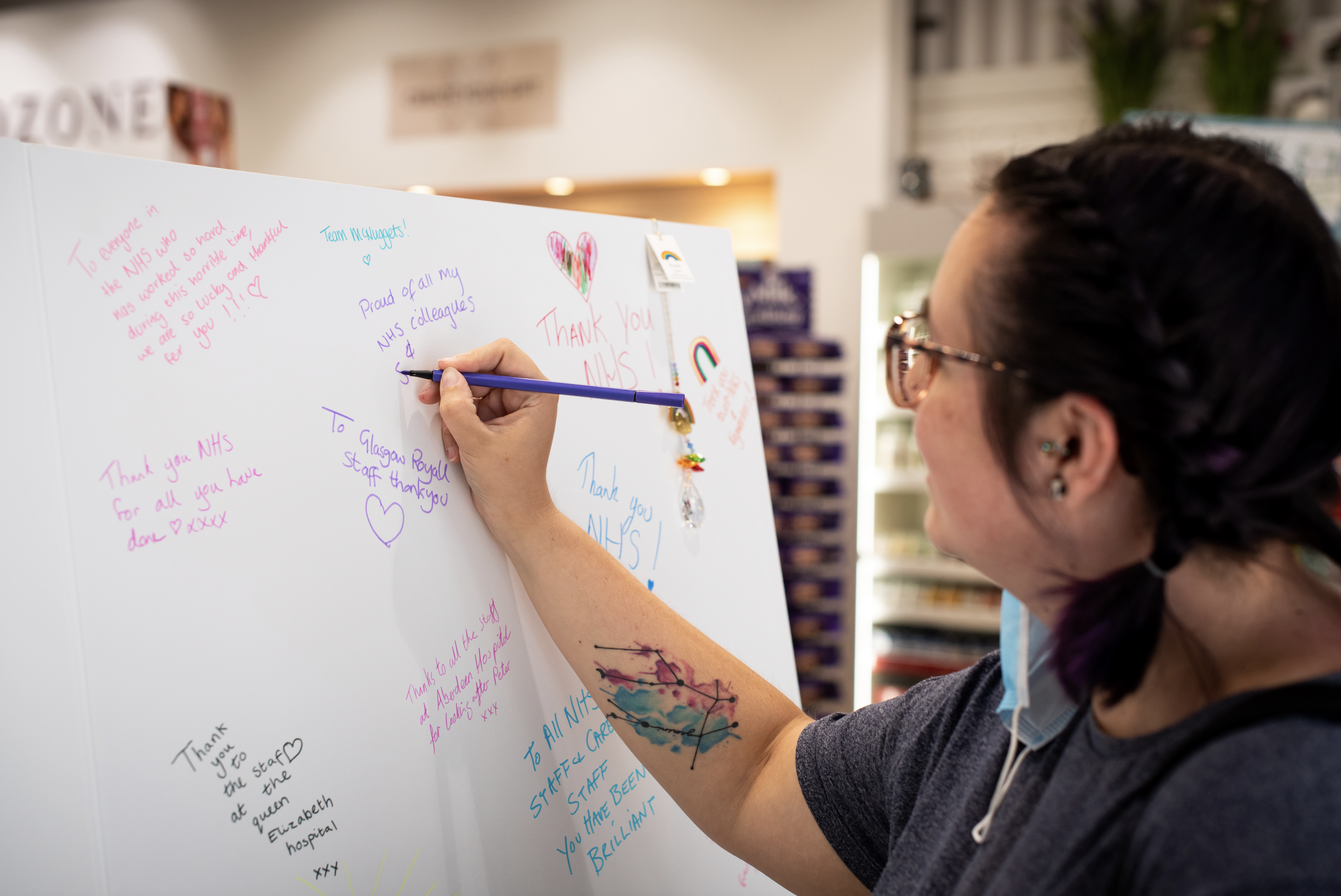
This sentiment is best embodied in the ‘A Card for the UK’ campaign that took place this summer when Covid restrictions eased. Four large-scale greeting cards were erected across the nation to encourage passersby to write heartfelt messages inside, whether they be addressed to a missed loved one, a lost relative, or the nation itself. Designed by the Hallmark Creative Studio and printed on recycled Fedrigoni paper, the cards formed an emotional time capsule as the nation experienced another monumental shift in the pandemic, a testament to the power of the written word in creating a moment of shared optimism for the future ahead.
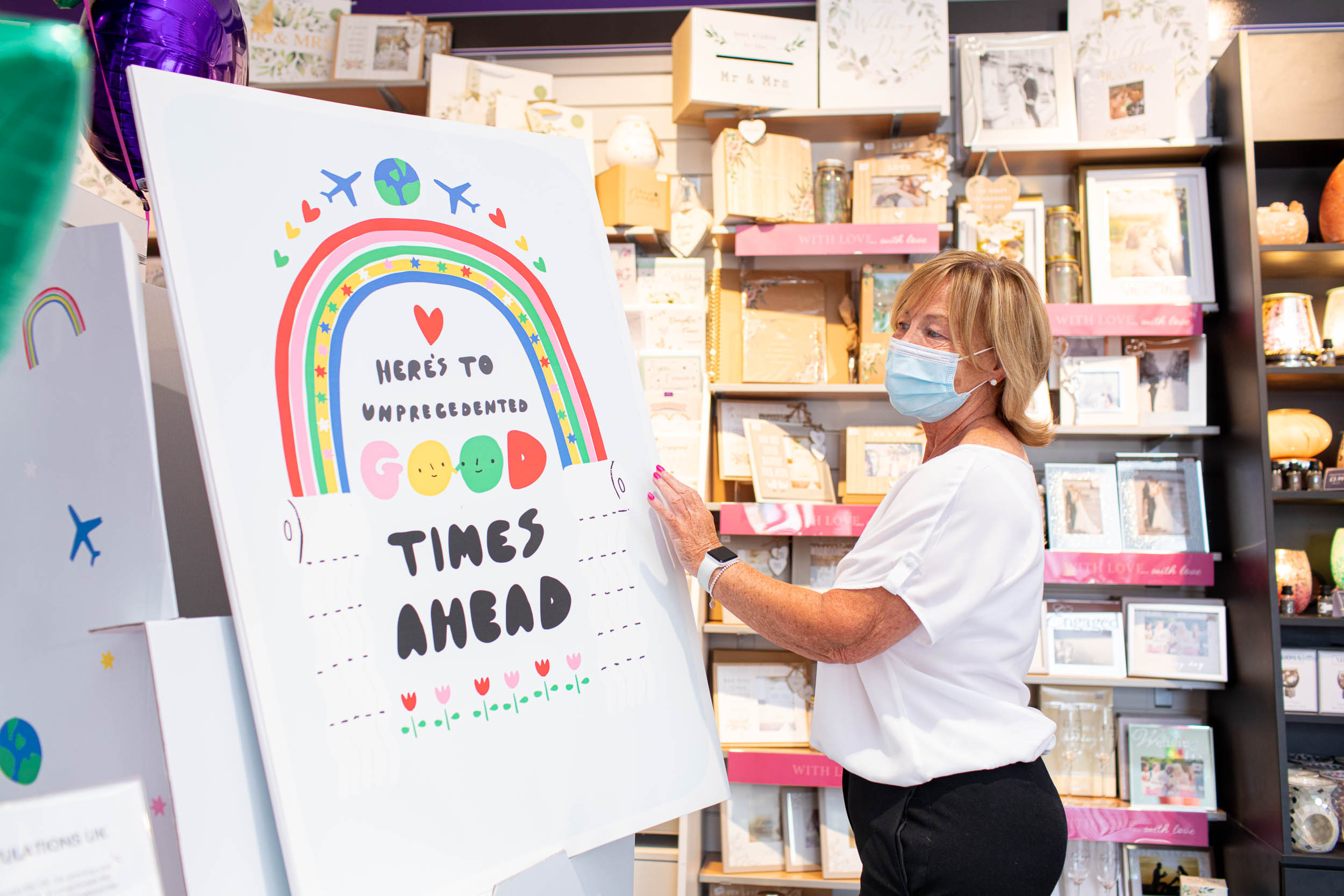
Beyond this sentimental driver, the resilience of the industry is also tied to another trend that impacted all sectors: the e-commerce boom. While all greeting card retailers beyond supermarkets were shut, online single greeting cards rose from 8% of sales in 2019 to a gigantic 25% in 2020. Industry leader Moonpig reported revenue growth of 122%in online sales in 2020/21, for example. Yet while high street sales have recovered to pre-covid levels, the e-commerce zeitgeist hasn’t gone away, meaning that the pandemic has actually provoked growth across the industry.
And then there’s the sustainability movement. As we all became more aware of the world around us, the climate question shifted from problem to emergency in the nation’s mind, sparking a renewed embrace of conscious consumerism. Two thirds of people now say that sustainability is a consideration in greeting card choice, leading to a widespread movement towards recycled papers by designers and printers.
Coated materials such as Symbol Card Eco are increasingly popular, offering designers that smooth satin finish in up to 100% recycled content. Or for those looking for that more organic feeling associated with sustainability, the uncoated Old Mill Eco became a common choice for its textured and grainy quality. Carbon offsetting schemes have also become readily available across the paper industry, while on-shoring rose in popularity when shipping prices soared and bringing distribution closer to the point of production became a more environmentally-friendly alternative.
Following government inaction at COP26, the sustainability movement will only gather more speed as consumers take matters into their own hands to drive environmental change. Looking ahead, we’ll see environmental responsibility become the norm in the greeting card sector. From a design point of view, the ‘naked’ card will become ever more popular, where glitter and foiling take a back seat and the paper itself does all the talking. In this climate, paper selection will be more important than ever for greeting card designers.
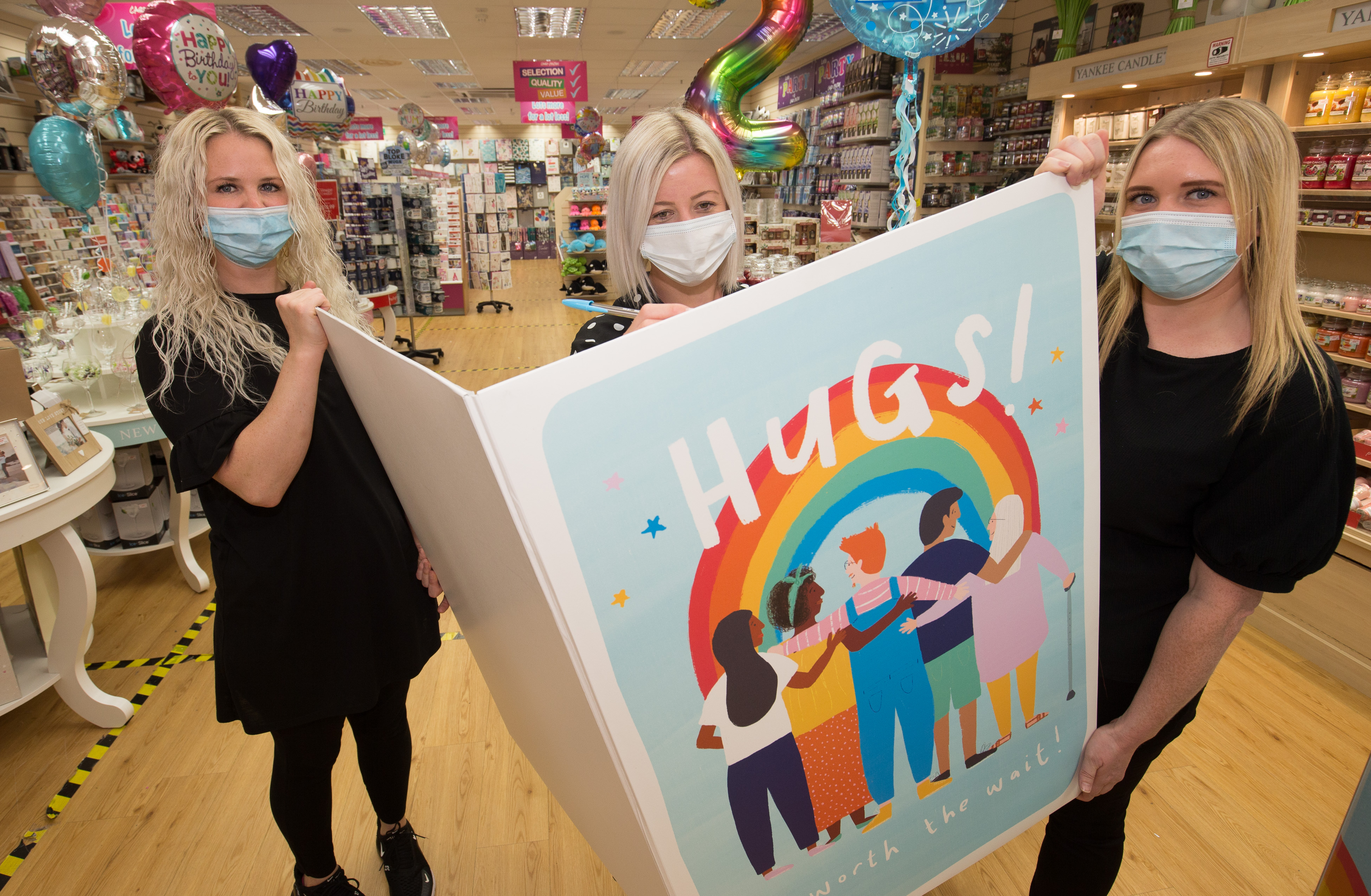
Besides sustainability, we’ll also see consciousness become increasingly popular among the themes and designs of greeting cards. Inclusivity will develop exponentially, as LGBTQ+ families become more represented on cards, and diverse bodies are incorporated into the characters we see. There will also be more greeting cards that address mental health, as the pandemic has made us all a bit more confident about speaking up when times are hard.
Clearly, greeting cards can tell us a lot about society. From capturing the mood of a nation during lockdown, to embodying our new environmental consciousness, greeting cards form emotional time capsules of our ever-changing cultures and customs. They are a powerful lens through which to view the nation and will continue to do so for generations to come.
Top: A scene from the Card for the UK campaign.











